#FemaleFowardInternational
Finding solutions for Croatia
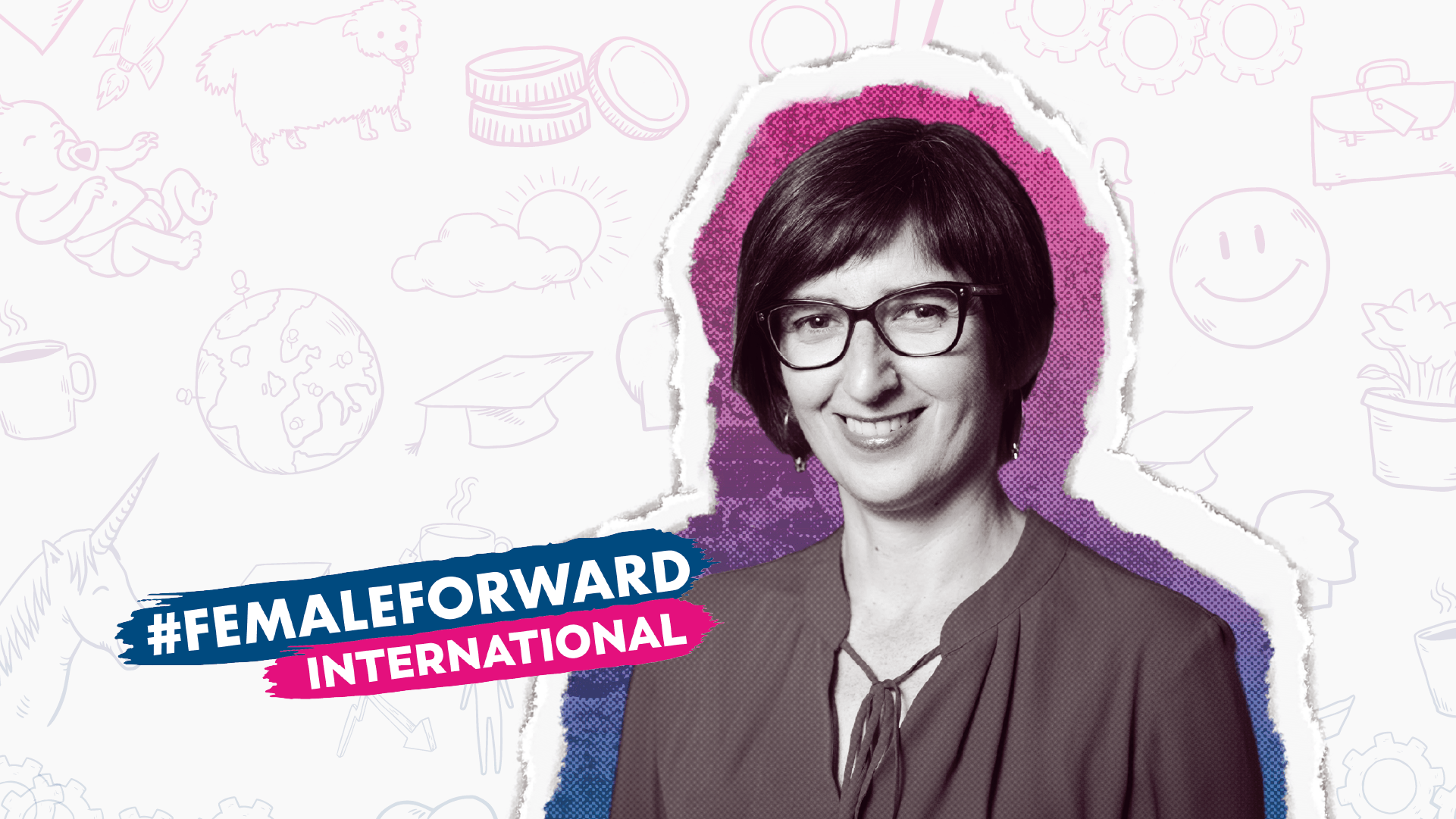
Marijana Puljak, an IT engineer, entered politics in order to establish a school in her neighbourhood and now vows to create a liberal alternative in her country.
During the last decade, the growth of the IT industry across the Balkans has spawned a small, but flourishing, social class of progressive, mostly liberal-oriented people who became successful from their skills (often technical) and entrepreneurial acumen rather than by exploiting political and family connections. For them, concepts such as meritocracy, the rule of law, and civic engagement are not empty phrases, but real values they believe in – and are ready to fight for. It was just a question of time before they began actively participating in politics.
In 2008, Marijana Puljak – an IT engineer and, at the time, head of the IT production support department in a large Croatian bank – initiated a plan, with several like-minded neighbours from her hometown of Split, that sought to pressure their local authorities to create a much-needed primary school in their part of town. This struggle, which lasted for years, led her to believe that simple civic pressure would not be enough to attain their goal – living in a modern, well-planned, orderly, and well-governed city. “You have smart phones, smart cars, and technology is all around – so why not have a smart party to govern the cities and states that chooses smart solutions,” she says.
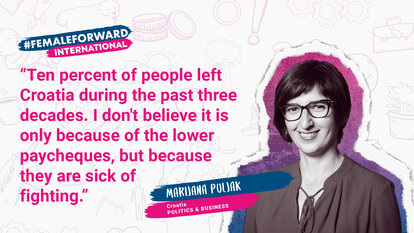
Instead of sowing divisions, Puljak’s “Pametno” – which won a seat in 2020’s parliamentary elections – is trying to form stronger coalitions. In July 2020, the party joined a coalition with two other liberal parties to make it into the National Assembly and has now made a move to integrate two of them in a single entity. “During that campaign, we started to think that it doesn't make sense to have so many liberal parties promoting the same ideas, so we decided to join forces. After working together in parliament, we started to prepare a merger with Stranka s imenom i prezimenom, STRIP (Party with Name and Surname)… and last Sunday we founded a third party to be successor of those two – we changed the name of “Pametno” to “Center” and the people from STRIP joined it. This is a first in Croatian history – usually parties are splitting, but no, now for the first time we joined two entities into one,” Puljak explains.
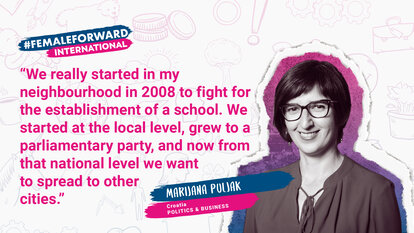
What Puljak’s faction stands for
As the name suggests, the new party will continue on its liberal course. “We are pro-women's rights, for the right to choose, the right to have an abortion, the rights of minorities and gay people, and for those other liberal democratic rights that are already enshrined in our constitution – so they are not up for discussion anymore. We are not going back on any of them – there is no discussion about it, any person should have the right to choose the way they want to live their life. So that's why we said our ideology is settled and now we need to think about the future,” Puljak says firmly.
The attacks her party receives from the left are about it being neo-liberal (“oh, they want to destroy workers’ rights and trade unions, they are pro-capitalist,” Puljak recites) and, from the right, that they are leftist because of their support for same-sex partners being able to become guardians of orphaned children. This does not worry Puljak, as she is clear about why she supports certain policies. On the same-sex guardianship, she says: “It is a common civil right – they call us a centre-left party, but for us it is common sense.” And on her support for lower taxes, she is clear that “what we want is for Croatia to be a wealthier state and for Croatians to be a wealthier people. When entrepreneurs and owners of companies are able to create more jobs, we will have more satisfied workers.”
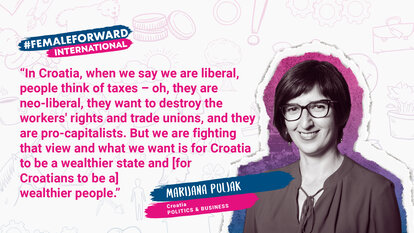
The current priorities of Puljak and her party focus on promoting the rule of law in the country. “We are really concerned with fighting corruption, and, with our partner Dalija Oreskovic (the ex-leader of STRIP, who used to head the conflict of interests committee of the country), we work to establish anti-corruption laws and policies,” she says. The other two core topics for her are making life easier for businesses to operate by decreasing the administrative burden on them and education. “We are focused on education, because education is also the cornerstone of any modern society, because if you don't have an educated society, you can't progress.”

A hard transition to politics
For Puljak, who is a relative newcomer to the political world after two decades in the private sector, it is sometimes hard to swallow this change in career paths. “I wake up every morning and I ask myself: “why am I doing this”, because, really, what makes politics hard, is that people are fed up with it. They think nothing can be changed,” she says. To her, the public perception in Croatia is that all politicians are the same and voting won’t change anything – this is why about half of them abstain from going to the polls. “This is why sometimes I think I'm crazy, I could be in business now, do what I like, and work with colleagues on IT solutions. But then I turn on the TV, see these corrupt criminals, and I say, "come on, we need to fight this."
Despite having been in two fields that are often dominated by men – IT and politics – she confides that she has never felt pressured because of her gender. “When I started to work in IT, I never had any problems being a woman, of feeling less valued, or of male colleagues getting promotions faster,” Puljak says. While she does not dismiss the negative experiences of many other women, she says that every fight for justice is individual. “I always say to my two daughters… that if they encounter disrespect, they should stand up for themselves, that nobody will defend them. You will have to fight by yourself.” To Puljak, the bigger problem of women feeling underappreciated in their jobs comes from the fatalistic legacy of State Socialism that your first job is also your last. “I don't think it's something good most of the time, especially if you are not happy and you are told to stay safe, to not take risks. Safety is somehow overrated in the ex-socialist countries,” she says, asserting that this mindset needs to change.
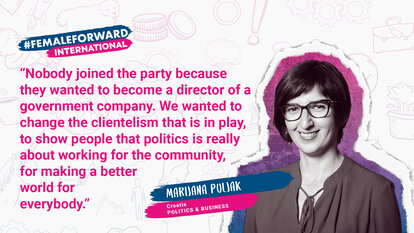
Women’s issues in Croatia
She singles out domestic violence as the number one issue Croatian women need to fight today. “There were high-profile cases, even some politicians were reported to have abused their wives, but sometimes even women don't report it, because they think that it's the way it is supposed to be. There are conservative beliefs in this country that say that women should stay at home and obey their husbands,” she laments, saying that many people in the predominantly Catholic country do not see domestic violence as a problem. Abortion is the other big topic that stirs public emotions. “There are these conservative organizations and parties always trying to raise the abortion issue. So far, our laws and constitution have been clear about it, but they try to raise this issue again and again.”
Puljak admits that there are not enough women in politics in Croatia. “It’s an issue and we have to work on it, whether by quotas or through education. Women should get involved in all aspects and topics that concern good governance and express their views on topics concerning women, like domestic violence. I would promote more women in politics not only to fight for women's rights, but to discuss all the topics that a modern government and society face,” she concludes. Personally, as a liberal she is not really keen on quotas and would prefer taking the educational path, getting girls engaged with social issues from a very young age (“tell them what politics is, tell them how to organize themselves, how to present the standpoints they stand for, how to change things and educate them from the ground level”). “I believe that you need to promote people to parliament who are good, who have experience, who want to do that job, and not just based on their gender,” she concludes.
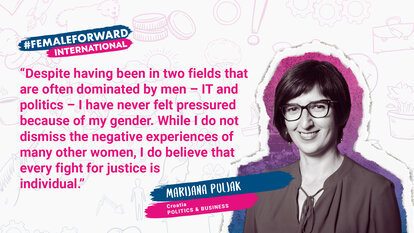
What is coming next for Puljak’s Center party is an actual return to its roots of localism. In 2021, the country will have local elections and the party will focus on expanding in as many local institutions as possible. “We will first focus on the four biggest metropolitan areas – Zagreb, Rijeka, Osijek, Split – and wherever else we can manage to accumulate enough momentum and human power. We will create teams to run for the elections and focus on local issues. In the end, people are interested in what is on their street, you know, is it clean, do they have jobs in their cities, the quality of life,” the politician concludes.
